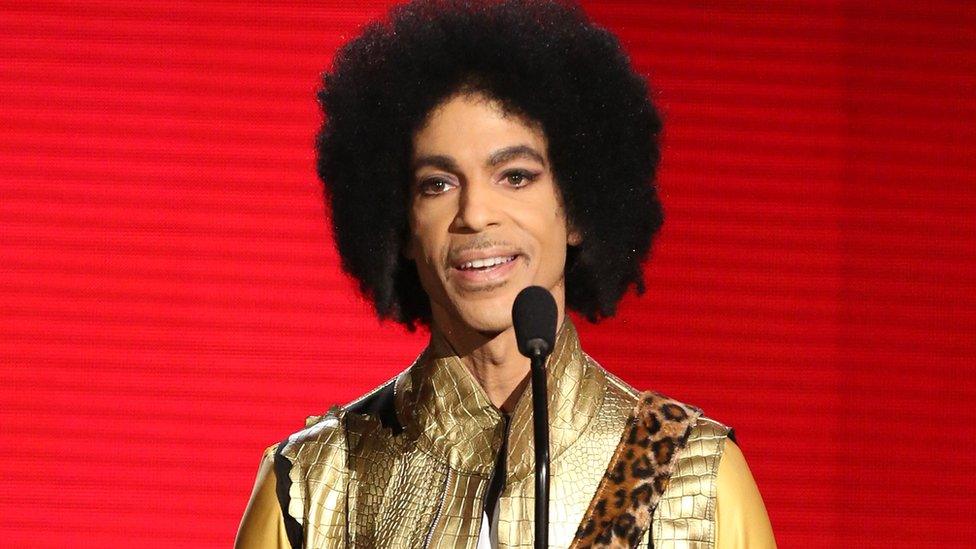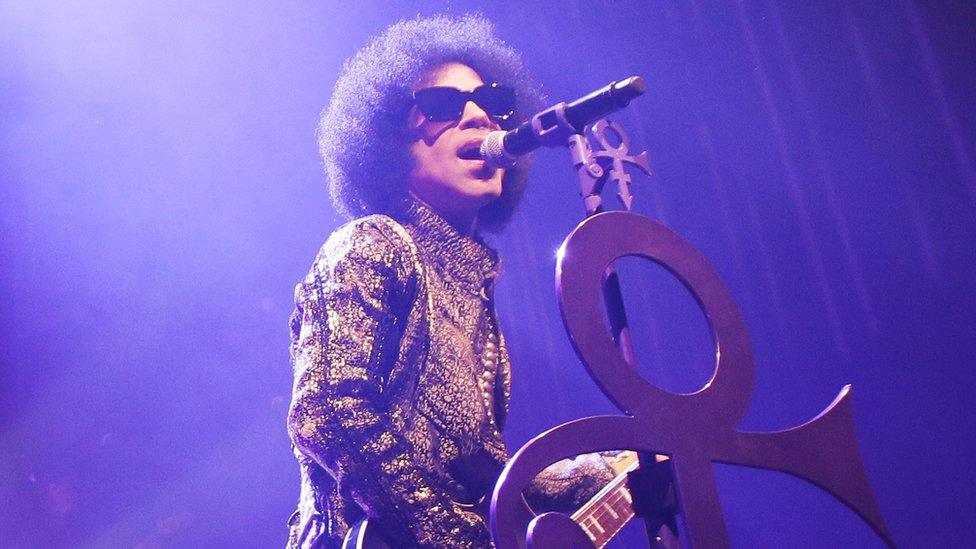Prince death: Judge snubs claims by 29 would-be heirs
- Published

Five people came forward to say they were Prince's children
A judge in the US state of Minnesota has dismissed claims by 29 people who said they were owed a share of Prince's inheritance.
The singer died in April from an accidental overdose of the painkiller fentanyl, but he did not leave a will and did not have any children.
Reports in Minnesota say his estate may be worth at least $300m (£227m).
A judge has now ordered genetic tests to be carried out on six people with claims to be relatives of the singer.
Four siblings or half-siblings, as well as two women believed to be a niece and a grand-niece, will be tested.
Genetic tests had already ruled out the claim of a man in jail in Colorado who said he was Prince's son.
And, as part of the latest ruling, Judge Kevin Eide decided a claim by a Georgia woman, who said she and Prince were once married, was not valid. She had said the CIA was keeping their marriage record secret.
When Prince spoke to the BBC - and didn't say a word
Minneapolis' Star Tribune newspaper said the case was thrown out against five men, external who said Prince was their father.
Prince was found unresponsive in a lift at his Paisley Park Studios on the morning of 21 April, local officials said. First responders tried to revive him with CPR but he was pronounced dead shortly afterwards.
Prescription painkillers were in the 57-year-old's possession following his death, officials told US media in May.
He is believed to have suffered from knee and hip pain from years of performing.
According to the autopsy report, Prince self-administered fentanyl, an opioid many times more powerful than heroin.
A singer, songwriter, arranger and multi-instrumentalist, Prince recorded more than 30 albums. His best known hits include Let's Go Crazy and When Doves Cry.
- Published3 June 2016

- Published22 April 2016

- Published24 April 2016

- Published21 April 2016

- Published21 April 2016

- Published22 April 2016

- Published22 April 2016
